#AntonyJ.Blinken
Explore tagged Tumblr posts
Text
Blinken Reinforces U.S.-Israel Bonds in Aviv
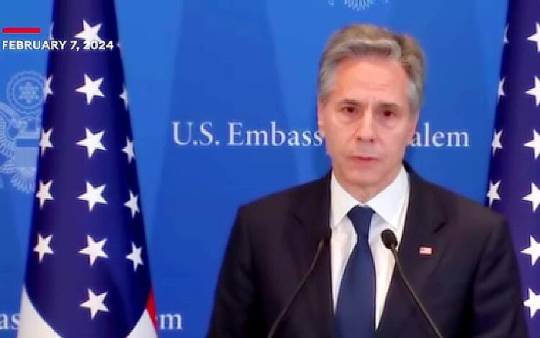
Secretary Blinken's Visit to Israel Secretary of State Antony J. Blinken's recent visit to Israel marks his fifth trip to the region, emphasizing the importance of the U.S.-Israel partnership. Blinken's agenda focused on diplomatic efforts, humanitarian assistance, and addressing the critical issue of hostages in the region. Hostage Crisis and Diplomatic Efforts During his visit, Secretary Blinken reiterated the U.S. commitment to resolving the hostage crisis. He expressed empathy for the families affected and emphasized ongoing efforts to bring the hostages home. Discussions with the Israeli Government centered on a proposal by the United States, Qatar, and Egypt, aimed at resolving this crisis.
The United States Response to Regional Tensions
Blinken's discussions with Israeli officials included a thorough review of the military campaign against Hamas and strategies to prevent future conflicts. He also addressed the tension on Israel's northern border, advocating for de-escalation and the safe return of families to their homes. Humanitarian Initiatives in Gaza A significant focus of Blinken's visit was the humanitarian situation in Gaza. He discussed the U.S.'s role as the largest donor of humanitarian aid to the Palestinians and the efforts made to provide relief, including the delivery of essential supplies. He urged Israel to enhance civilian protection and facilitate the flow of humanitarian aid, especially to northern Gaza.
The U.S. Stance on Israel's Security and Civilian Protection
While recognizing Israel's right to defend itself against terrorism, Secretary Blinken also stressed the importance of minimizing civilian casualties. He highlighted the need for Israel to take concrete steps to ensure the effective delivery of humanitarian assistance to Gaza. Condemnation of Terrorism and Support for Israel The Secretary condemned the actions of groups like Hamas that embed themselves among civilians and called for a just approach to dealing with the innocent majority in Gaza. He reaffirmed the U.S.'s unwavering support for Israel's security and its right to self-defense.
Pursuing a Path to Peace
Secretary Blinken emphasized the U.S.'s dedication to a diplomatic solution that ensures peace and security for all in the region. He outlined a vision for Israel's integration into the region, including normal relations with key countries and a path towards a Palestinian state. Steps Towards Lasting Peace In his discussions, Blinken highlighted the necessary steps for achieving lasting peace in the region. This includes reforms by the Palestinian Authority and addressing challenges posed by Iran and its proxies.
U.S. Commitment to Israel's Future
In his visit, Secretary Blinken underscored the United States' profound commitment to Israel's security and prosperity. He emphasized the need for responsible actions and rhetoric that foster peace and stability. As a longstanding ally of Israel, the U.S. continues to provide guidance and support in navigating the path toward a peaceful future. Sources: THX News & US Department of State. Read the full article
#AntonyJ.Blinken#Civilianprotection#Diplomaticefforts#Hamasandterrorism#hostagecrisisresolution#humanitarianaidtoGaza#Israelidefenseandsecurity#pathtopeace#RegionalStability#U.S.-Israelpartnership
0 notes
Text
Blinken Thanks State Dept Workforce Who Resettled 222 Nicaraguan Political Prisoners
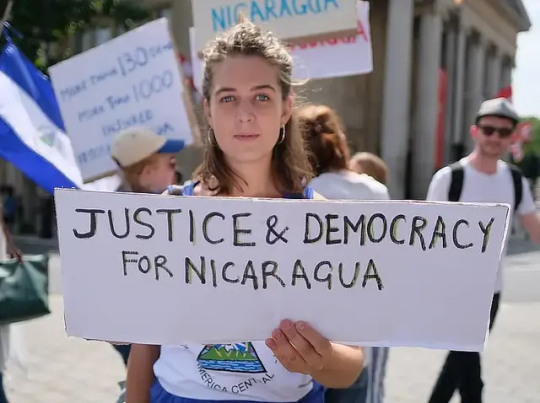
Transcript of the Speech
SECRETARY BLINKEN: Well, this is really a moment to just drop the mic and leave because – (laughter) – a few things I wanted to share with all of you, but I think the first and most important is this: Moments like this are important. We don’t usually take the time, even half an hour, 45 minutes, to just press pause and reflect on something that we’ve done, because there’s just too much to do. And the inboxes are overflowing, and it’s always move, move, move. But it is important to do that because when we’re at our best, as each of you has been in this extraordinary chapter, it really is worth reflecting on. And I hope that it inspires, energizes, encourages each of us to keep going, to keep doing this, to keep with this calling that has drawn all of us together in this incredible enterprise. Erin said something that is I think very powerful and it’s that we get called upon to do lots of things in our careers here at State, other agencies. But there’re not that many moments when you can really say and see directly that something you have done has actually changed someone’s life, and changed it for the better. There’s usually too many points of connection along the way to really see it and really feel it, but the experience that each of you has had – in this instance, I hope really makes that connection, makes it powerful, and is something that you’ll take with you throughout your careers and throughout your lives no matter what you do going forward. It’s simply the most powerful thing that we occasionally have an opportunity to do, and it really is worth reflecting on. Tressa, my friend, my travel companion, colleague, this is the epitome of the person here who runs into the burning building every single time, no matter how challenging it is, and gets the job done. And we’ve seen that again and again. I’m so grateful once again to you for your incredible leadership in this instance. The extraordinary team of volunteers – and that was a hugely important word, volunteers – that Mike shared with us. That just inspires me tremendously because, again, I’ve seen it time and again in this department. When we’ve had an urgency, when we’ve had an emergency situation, when we’ve had a daunting challenge, people have been raising their hands. They’ve been standing up. And they’ve been running – you’ve been running – into the building, and that makes a huge difference. Your determination, your skill, your heart, which is also very apparent in the stories that we’ve heard from Katherine, from Marta, from Josh, from Hannah, from Gail, from Michael – that truly is inspiring to me as well. And to everyone who is joining us today, including folks who are online, as well as everyone here in person, thank you for everything that you’ve done; and thank you for sharing the stories. We know that for each of the six stories, seven stories that we just heard, there are hundreds more – from across the U.S. Government, from across NGOs – from people who stepped up to welcome the 222. And I hope that in some way, as well, we’ll find a way to collect some of those stories and maybe share them with colleagues because – again, I think it’s going to be incredibly inspiring to them. But these doctors, these political leaders, these journalists, these priests, these others who all came together and found themselves together – as a result of your work – on that plane, they had one thing that connected them, one overriding aspiration, and that was to simply exercise their fundamental freedoms and to try to safeguard the freedom of their fellow citizens. Tragically, in Ortega’s Nicaragua, that’s a crime. It’s why these activists were imprisoned for months and sometimes years; denied visits from their loved ones. Many were held in harsh conditions, little access to sunlight, to fresh air, writing materials, books. One prisoner recalled reading and re-reading the label on a tube of toothpaste. And as you’ve heard, living with that constant fear that you could be pulled into another cell to be beaten up, to be tortured – the constant fear that you might even be executed. Living with that, every single day, is its own kind of horrific torture. But it’s precisely because of the power of their message, their actions, the alternative vision that they have for their own country and the way it should treat its own people – it’s exactly why the regime stripped them of their citizenship soon after they came to the United States. That too speaks volumes. But it’s also why we felt compelled to do what we could to bring them to safety. And it’s why the work that all of you did – and did together – was so important. Now, that work began, in large part, with our colleagues in Embassy Managua who negotiated with the Nicaraguan Government, creating a system to ensure that each of 222 prisoners was accounted for, and – when the moment finally came, during the early morning hours of February 9th – physically escorting them to the airplane and then to their freedom. Katherine talked about the – waiting for that final confirmation, and I know that’s excruciating. And as this was all happening, and Brian and Erin and others were keeping me informed of what was going on, I have to admit, I wasn’t so sure this was really going to come together. I had a funny feeling, oh, this is going to fall apart. It seems almost – almost too good to be true, but too good to be true because so much work actually goes into this. These things don’t just happen. It takes the incredible effort that started in Managua to actually get it done. From there, more than 350 – more than 350 of our colleagues from the U.S. Government, as well as partners from the state of Virginia, NGOs – you all took over. You worked around the clock, you worked through the weekend, reuniting prisoners with their loved ones. You interpreted for them. You provided them with food, with clothing, with healthcare. You helped them through the jarring process of starting a new life far from their homes and their communities. And what I heard also in the stories that were told is I think you all responded in a powerfully human way, because I imagine as you’re there with someone who has just had this absolute sea change in their life, you’re thinking and feeling and understanding how totally jarring and disorienting that is – even in this incredibly positive way. And the humanity that you showed as fellow human beings in helping them navigate this particular passage – that in and of itself was hugely important. And indeed, it wasn’t just what you did, it’s how you did it: with care, with compassion, by asking each of our Nicaraguan friends how are you doing, are you okay, what do you need – probably a question they hadn’t been asked in a long, long time. By arriving at the tarmac with American colleagues that they knew from the past, they were welcomed by familiar faces. And Marta, I know that must have had a powerful impact on them as well. As one of the volunteers put it, “The whole operation was successful because we all cared too much to accept anything less.” Now, because of this work, our Nicaraguan friends are beginning new lives across more than two dozen U.S. states, some now moving on to other countries as well. Some have already jumped back into activism – no surprise – rallying international support and pressure for a better future for their country at the United Nations, the Organization of American States, the Summit for Democracy just this week. At the summit, we heard some of these voices. Others are starting the process of opening new businesses, continuing their studies, getting on with their lives that were so violently interrupted by the Nicaraguan regime. Now, in the months ahead, we have our NGO partners that will continue to support the recent arrivals’ relocation. We have our embassy colleagues who will work to reunify family members in Nicaragua with their newly settled family members in the United States. So, this process goes forward. It carries on. And at the same time, for us, a government, we’ll join our partners across the hemisphere and around the world to continue to push for a return to democracy and respect for human rights in Nicaragua, while also using all of the diplomatic and economic tools that we have to try to promote accountability for the widespread abuses from the regime. So, in a very small period of time, in a very intense way, you gave us a reminder of who we are when we’re at our best – which is not every day, but it was in the days that you were engaged in this mission: a country that stands with those on the side of freedom and human rights, and fights for our democratic values around the world. You’ve demonstrated that with your service; you’ve demonstrated that with your dedication. So, I’m so glad we just had a few moments together, again, to press the pause button, to reflect a little bit on what each of you has done, and to take that with you going forward because this career that all of you have been called to in a variety of ways, I know a lot of days can be frustrating. I know we pile on the work. The inbox gets higher, the resources seem to get – to shrink, and we’re working on all of that. And I know there are days for each of us when we say, is it worth it? Maybe I should be doing something else. I hope and I believe strongly that this experience is a reminder of what an incredible pursuit this is, what an incredible responsibility we all have, but also what an incredible privilege it is to actually work for, represent your country, and try to make sure that the country that we love and share and the department that we love and share is actually operating at its best. In this instance it was because you were. And I just wanted to thank you on behalf of the President and as a fellow American. Thanks for exemplary work. Thanks for your service to our country. Thank you. Sources: THX News & US Dept. of State. Read the full article
#222NicaraguanPoliticalPrisoners#AntonyJ.Blinken#NicaraguanPoliticalPrisoners#Politicalprisoners#USSecretaryBlinken'sSpeech
0 notes
Text
Sustainable Development Goals: Blinken Unveils AI Vision

Harnessing AI to Improve Lives and Address Global Challenges
In a dynamic address at the New York Public Library, U.S. Secretary of State Antony J. Blinken emphasized the transformative potential of artificial intelligence (AI) in advancing global sustainable development goals. Secretary Blinken commended the library's historical role in shedding light on the world's most pressing issues through knowledge exchange, setting the stage for a crucial discussion on leveraging AI to create a safer, healthier, and more prosperous world. The Power of AI in Achieving the SDGs Secretary Blinken acknowledged that AI, particularly advanced systems like GPT-4, presents a new era in technology, with vast potential to process information, solve complex problems, and create original content. However, he also highlighted the potential risks associated with AI, including bias, discrimination, and misuse for harmful purposes.
The Urgent Need to Achieve Sustainable Development Goals
As Secretary Blinken noted, progress toward achieving the Sustainable Development Goals (SDGs) by 2030 is lagging, with only 12 percent of the targets on track for completion. Some goals are regressing, demanding immediate action. Blinken stressed that every tool, including AI, must be employed to get the SDGs back on course. AI's Role in Advancing the SDGs Experts estimate that AI could advance nearly 80 percent of the SDGs and their targets. What's more, AI systems are already being actively utilized to predict extreme weather events, enhance agricultural productivity, combat hunger, manage disease outbreaks, and develop clean energy infrastructure.
International Cooperation and Governance
The United States, as a leader in AI governance, has developed a blueprint for an AI Bill of Rights and an AI Risk Management Framework. It has also initiated voluntary commitments with top AI companies to enhance safety and security. Efforts are underway to establish international AI governance frameworks, with participation from developing countries. Maximizing AI for the Greater Good Companies have pledged to create AI systems focused on addressing society's challenges. The U.S. aims to support these efforts and strengthen partnerships between developers and governments. The country also supports initiatives like AI for Climate Action and AI for Good, emphasizing the importance of cooperation across governments. U.S. Commits $15 Million to Drive AI for Sustainable Development Secretary Blinken announced a $15 million commitment by the United States to help governments worldwide harness the power of AI to advance the Sustainable Development Goals. This substantial funding will play a pivotal role in furthering AI's positive impact on global development. Shaping the Future of AI Together Secretary Blinken concluded his address by highlighting the immense responsibility shared by governments, the private sector, civil society, and individuals in shaping the future of AI. He emphatically emphasized that with collective efforts, the opportunities offered by AI are boundless, and the world can harness its potential for the benefit of all. Sources: THX News & US Department of State. Read the full article
#AchievingSDGs#AdvancingGlobalDevelopment#AIforSustainableDevelopment#AIGovernance#AntonyJ.Blinken#ArtificialIntelligence(AI)#GlobalGoals#Internationalcooperation#Sustainabledevelopmentgoals#U.S.CommitmenttoSDGs
0 notes
Text
On the Occasion of His Majesty King Charles III’s Official Birthday
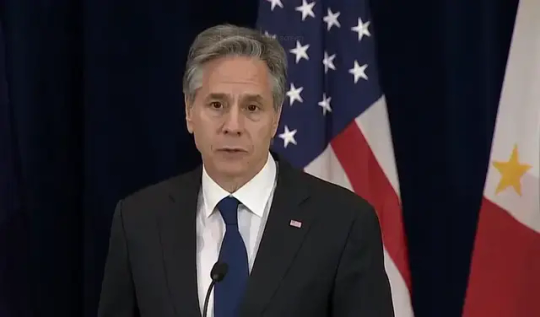
Statement by Antony J. Blinken, Secretary of State
On behalf of the United States of America, I send warm congratulations to His Majesty King Charles III, Her Majesty Queen Camilla, and to the people of the United Kingdom of Great Britain and Northern Ireland as you celebrate His Majesty’s official birthday. As President Biden said earlier this month, we have no closer ally than the United Kingdom. Our two nations collaborate and lead together to confront the urgent challenges of our time, as we uphold democratic values, human rights, and the rule of law. I deeply admire His Majesty’s commitment to sustainability and protecting the planet for future generations. The United States and United Kingdom will continue to work hand in hand to combat the climate crisis and to conserve and protect the biodiversity of our planet. Our countries are also in lockstep in our support for Ukraine as it defends its people and its territory against Russia’s war of aggression. I look forward to deepening the close U.S.-UK friendship as we work together to advance our shared values and build a more secure world. On this special day, I wish His Majesty the King and the British people peace, prosperity, and health for the year ahead. Sources: THX News & U. S. Department of State. Read the full article
#ally#AntonyJ.Blinken#climatecrisis#democraticvalues#HerMajestyQueenCamilla#HisMajestyKingCharlesIII#SECRETARYOFSTATE#U.S.-UKfriendship#UnitedKingdomofGreatBritainandNorthernIreland#UnitedStatesofAmerica
0 notes
Text
Safeguarding the World: Celebrating 75-Year Legacy of UN Peacekeepers
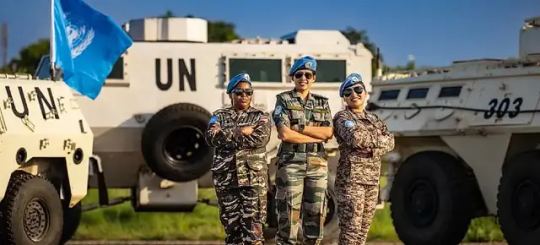
Secretary-General António Guterres said in his message for the Day: “United Nations peacekeepers are the beating heart of our commitment to a more peaceful world.” He called for continued support for these men and women, who help countries to transition from war to peace.
Hope and help
“They are also critical to the protection of civilians caught up in the chaos of these deadly conflicts, providing a lifeline of hope and help in some of the most dangerous contexts imaginable," he added. Mr. Guterres noted that many have paid the ultimate price as more than 4,200 peacekeepers have lost their lives serving under the UN flag. “We stand in sympathy and solidarity with their families, friends and colleagues, and will forever be inspired by their selfless devotion to the cause of peace,” he said.
Support and recognition
Today, more than 87,000 peacekeepers from 125 countries serve in 12 UN operations located in Europe, Africa, Asia and the Middle East. They face rising global tensions and divides, stagnating peace processes, and more complex conflicts, the Secretary-General said. “Despite these obstacles, and working with a wide range of partners, peacekeepers persevere,” he added “To people living under the shadow of conflict, our teams of Blue Helmets represent hope. As peacekeepers support humanity, let us always support and recognize them.”
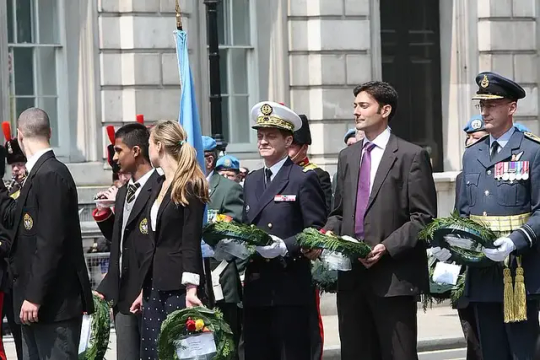
International Day of United Nations Peacekeepers, 2012. Photo by Foreign and Commonwealth Office. Flickr.
‘Peace begins with me’
The International Day of United Nations Peacekeepers has been commemorated annually on 29 May, in line with a UN General Assembly resolution adopted in 2002. The date marks the start of the first UN peacekeeping mission, the United Nations Truce Supervision Organization (UNTSO), in Palestine in 1948. The theme of the 75th anniversary of UN Peacekeeping is ‘Peace begins with me’, which recognizes the service and sacrifice of blue helmets, past and present. It also pays tribute to the resilience of the communities they serve, who continue to strive for peace despite many obstacles. The annual ceremony marking the Day was held on Thursday at UN Headquarters in New York, where the Secretary-General noted that peacekeepers “are increasingly working in places where there is no peace to keep.” The following day, the city played host to an interactive art installation in Times Square celebrating peacekeepers and all those who work together to build and maintain peace across the world, including community members and local influencers in places where UN missions operate. --End of UN Article--
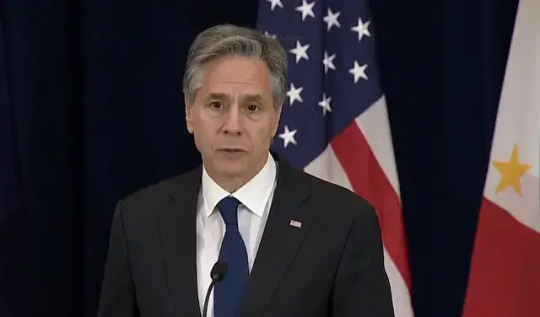
Blinken press statement. Photo by US Dept. of State.
Response by the US Government
Antony J. Blinken, Secretary of State This May 29th, on the 75th anniversary of UN peacekeeping, the United States reaffirms its enduring commitment to UN peacekeepers and recognizes their indispensable role in addressing shared threats to international peace and security. Today we honor the more than 4,200 military, police, and civilians who have given their lives for the cause of peace, reconciliation, and recovery. And we salute the bravery, service, and sacrifice of the more than one million men and women from 125 countries who have served – or are now serving – in UN peacekeeping missions around the world. Since the first mission in 1948, UN peacekeeping has proven to be remarkably important to advancing the cause for peace. Its core objective is what we strive to deliver: To help countries move from conflict to sustainable peace. The United States is the largest financial contributor to UN peacekeeping over the last 75 years. We also provide training and equipment to help partners develop key enabling capabilities and invest heavily in long-term bilateral capacity-building partnerships essential to mission success through efforts such as the Global Peace Operations Initiative. The United States invests in peacekeeping because it works. Data from the last seven decades show that peacekeeping reduces violence, contains civil wars, brings leaders to the table, and increases the odds of lasting peace. Peacekeeping is a shared responsibility that benefits all nations and peoples, and the United States will continue to be its leading proponent. Sources: THX News, US Dept. of State & United Nations. Read the full article
#AntónioGuterres#AntonyJ.Blinken#Peacekeepers#SECRETARYOFSTATE#Secretary-GeneralAntónioGuterres#UNPeacekeepers#UNSecretary-General#UnitedNations#USGovernment
1 note
·
View note
Text
What Secretary Blinken's Closing Remarks Mean for US Investors
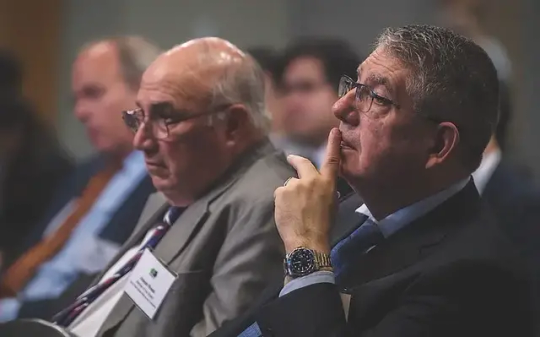
Transcript of the Speech
2023 SELECTUSA INVESTMENT SUMMIT, NATIONAL HARBOR, MARYLAND USA. SECRETARY BLINKEN: Thank you. Thank you very much. Good morning, everyone, and it is wonderful to see all of you here, so many of you here. It’s quite an extraordinary turnout. And Don, thank you very much for that introduction and also – and more important – my thanks to you and to my good friend, Secretary Gina Raimondo, and the entire team at the Commerce Department for the work that you’re doing every single day to drive economic opportunity for the American people and for our partners. So it really is a pleasure for me to be here at the United States’ biggest investment summit with business leaders from every part of the world, including thousands of foreign investors and representatives from the American private sector. A very warm welcome as well to the hundreds of city and state leaders here with us today. Thank you. Thank you for the critical role that you’re playing in attracting and welcoming new businesses into your communities and reminding private and public investors alike why it is always a good bet to invest in America. So throughout this week, this group has heard from leaders across the U.S. Government on why the United States is the best place in the world to invest: our culture of innovation and entrepreneurship, driving new products and solutions at scale; a world-class system of universities and colleges, fueling ideas and fostering talent; our rule of law, protecting intellectual property, worker rights, fostering growth. Today, what I thought I’d do is just briefly lay out how we’re building on these advantages to try to make the United States an even stronger and more attractive place to invest, to do business. And the short answer really is this: first and foremost, by investing in ourselves. We’ve made, as you know, historic investments in our competitiveness with legislation like the bipartisan CHIPS and Science Act, the Inflation Reduction Act, the Bipartisan Infrastructure Law – transformative laws that make America an even better place to do business, with more resilient supply chains, a stronger and more inclusive workforce, more regional innovation and technology hubs, improved infrastructure, including new roads, rail transit, waterways, airports, as well as expanded fast and free broadband across our entire country. But investment in ourselves is not a zero-sum proposition. Our approach is predicated on building a strong, resilient, and advanced industrial base with our partners around the world. We can’t build everything domestically, nor would we want to, because it’s to our collective benefit to have diversified supply chains across all of our partners. We’re also trying to modernize our economic partnerships to better position us to address the challenges and opportunities of this moment that we share: from combating the climate crisis, to tackling corruption, to driving sustainable economic growth. New initiatives like the Indo-Pacific Economic Framework, the Americas Partnership for Economic Prosperity will both protect our national and economic security, and that of our partners – creating closer connections between our countries, more opportunities for our businesses to invest and to thrive. And we’re using existing bodies to produce results for our people, like the U.S.-EU Trade and Technology Council, through which we’re coordinating our industrial strategies to be complementary to one another. This approach is delivering results. Since 2021, the private sector has invested more than $435 billion in businesses across the United States. A third of the investments announced since August have involved a foreign investor. There’s also record demand for our international business leaders to come to the United States, and that’s something that my department is working to facilitate. So far this fiscal year, we have already issued nearly double the number of business visas that we did at this point last year, and we’ve also surpassed the number of business visas that were issued before the COVID-19 pandemic – so that entrepreneurs and investors can attend professional conferences, negotiate contracts, work with their associates, do the countless things that they do to run successful businesses. As has been very evident this week, there is tremendous pent-up demand for more business travel, so we’re devoting more resources and streamlining our processes to help you secure business and work visas for yourself and for your employees. Our Bureau of Consular Affairs stands ready to help. We’ve made it easier to apply for these visas, including by launching the Business Visa Center. That’s a one-stop-shop to help international investors access visas for business travel. Later this year, we’ll be piloting a program to make it easier to renew some of our temporary work visas from within the United States instead of having to traveling abroad. That’s going to save time and it’s going to reduce uncertainty for employers. If you go back to 2011, since then this conference has helped bring in more than $80 billion in private investment. It’s supported more than 60,000 jobs in the United States while helping thousands of foreign businesses and investors enter the U.S. market, to the benefit of themselves, their economies, their fellow citizens back home. These partnerships have also helped us advance critical foreign policy priorities – something that needless to say I’m focused on. At last year’s SelectUSA Summit, the CEO of Taiwan-based semiconductor manufacturer GlobalWafers, Doris Hsu, announced plans for a new state-of-the-art facility in Sherman, Texas. It will be the largest facility of its kind in the United States. GlobalWafers broke ground last December, and once completed, this $5 billion facility will support more than 1,500 jobs in the United States. But it will also fill a critical gap in our advanced semiconductor supply chain – crucial to preserving our competitiveness on a technology that is foundational to the 21st century economy. Or consider the example of Delfast, a Ukrainian e-bike company that helped us confront the climate crisis by creating a zero-carbon transportation option. Thanks to the connections that they made with American partners at the SelectUSA Summit last year, as well as ongoing support from our embassy in Ukraine, Delfast was able to open its first store in the United States in September 2021 in Whittier, California. They are growing very quickly in the United States, with 70 percent of their customer base located in this country. In fact, Delfast has been so successful that they’ve announced plans to invest another $25 million in their U.S. operations over the next year, next several years. That will create another 200 jobs in Whittier. And we’re joined by representatives from dozens of Ukrainian startups similarly taking advantage of SelectUSA to thrive. Now, I know Delfast just won the premier award that we issue from this gathering. My only disappointment was that in the long journey from my car through the back stage all the way to the stage, I didn’t get a chance to use one of their e-bikes, but maybe on the way out. GlobalWafers, Delfast, hundreds of other companies have used this summit to gain the connections and the know-how to enter the United States market. The State Department stands ready to help your company do the same thing. We have 200 Economics and Business Affairs officers in Washington, D.C., and 1,500 economic officers in our embassies and consulates around the world, across more than 150 countries. All have the responsibility to help foreign businesses find the strongest investment opportunities here in the United States. They, along with our colleagues in the Department of Commerce’s Foreign Commercial Service, will be able to help you navigate legal frameworks in the United States, connect you with potential partners, and answer any questions that you’ve got along the way. So to our international visitors here today: The United States is very much open for business, and we hope you choose to invest your time and your talents with us. And to the U.S. businesses that are here today: We are standing by to continue supporting everything that you’re doing as you grow your businesses both here in the United States and around the world. If the innovation, the dynamism on display here this week is any indication, we have a lot to look forward to, a lot to be optimistic about. So to each and every one of you, thank you for being here. Thank you for taking part. We look forward to doing a lot of good business together in the years ahead. Thank you very much. (Applause.) Thank you. Sources: THX News & US Dept. of State. Read the full article
#AntonyJ.Blinken#Investments#Investors#MarylandOfficeoftheSpokesperson#TheSecretaryofState#USInvestors
0 notes
Text
Secretary Antony J. Blinken in Niger with Moussa Yahaya of TeleSahel
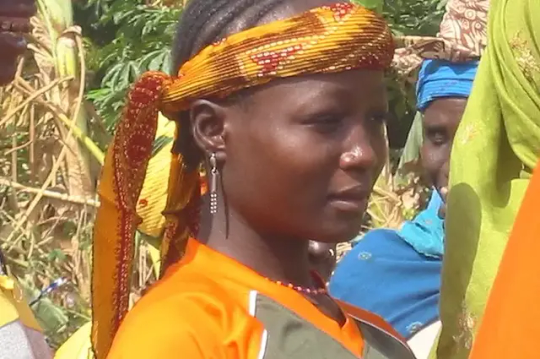
US Secretary of State and Moussa Yahaya in Niamey, Niger.
QUESTION: Secretary of State, good evening. It’s an honor to having you for an interview at the occasion of your passage here in Niger. So first of all, how is the cooperation between United States and Niger? SECRETARY BLINKEN: The cooperation is very excellent, and the more and more it is about a quantity – not only in quantity but in quality. We had the visit of the President Bazoum during the U.S.-African summit, and we had some discussion with President Biden and some – with some colleagues. And for me, it’s an occasion to be as well here to Niger to follow up and so that we can discuss about what we discussed in Washington, and also to deepen the partnership for the development and whether it’s in democracy, whether it’s in terms of security. QUESTION: Security was of course – according to your administration, what is the place of Niger in the layout of the established of – but most of the – how do you appreciate the role of Niger? SECRETARY BLINKEN: The role that Niger play is really essential, but at many levels. The fact that Niger is a model of democracy in a region which has difficulties at this moment – model because they’re working on, they’re focusing on their governance, the importance of institution and the importance of development; importance of giving really the – a choice. This example is really important, not only, first of all, for the people of Niger, but also in contrasting about what is happening in the region. QUESTION: So talking about development, countries like Niger, to be developed they most of the time go to the fossil energy – which is not, I mean, on fashion right now – to develop their country, which is create also climate change. At your administration, with the diplomacy that you handle, is – can you help Niger, countries like Niger to be heard? SECRETARY BLINKEN: Of course. I’m going to – talking about a lot of things. At the level of development, we have really important projects; also the program that we have that are funded by Millennium Challenge Corporation, of course in the – for agriculture area, and it’s in two areas. It’s to create access to the market, which is so important for the agricultures – for the farmers, and also (inaudible), which is also important, of course, and all the necessary tactics to have sustainable projects here in Niger. But at the same time, it’s to create a resilience against the impact of the climate change. And this is one thing which is about energy I think that we have here in Niger, which is important opportunities where we have discussed with the president, and there as well we will have some investment that will be great. But what we can see already in the investment projects like Millennium Challenge is to create an organization or a system, a cultural system, that creates employment and creates merchants and also creates links with the neighbor countries like Benin. And now we have a common market that is being – drawing with the roads that have been – that are created to be – created so that we can link the markets and the countries.
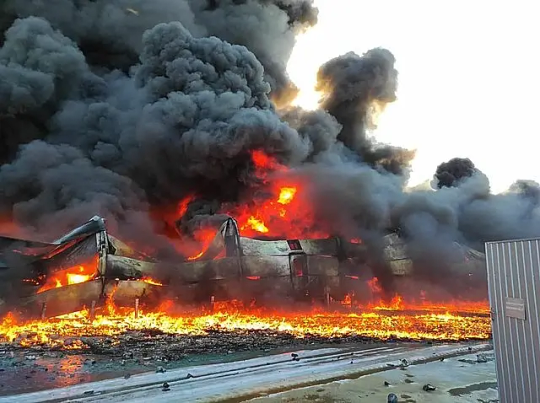
Storage building in Sumy after shelling during Russian invasion, 18 March 2022. Photo by State Emergency Service of Ukraine. Wikimedia. QUESTION: So what is your views about the war that we are having currently in Ukraine and that have impacted, like, countries like ours through – in the area of – economic area? Do you want to think of, like, a near end or just to control in terms of military? And – and on the area in terms of diplomacy? SECRETARY BLINKEN: Before this war that Russia led in Ukraine, we have the food crisis in Africa and elsewhere, and which is climate change and COVID that’s creating an impact, and other conflicts. And we have to add on this, this Russian invasion into Ukraine, and where we know that Ukraine have a lot of agricultural products and at the same time it creates – because these products and the cereals are being traded by this conflict that we’re having in Russia, it’s really impacted clearly on Africa. So – and we – if we have done since this – I mean, conflict, we have very important investment into the food security, that we have given about 13 billion U.S. dollars, and at the same time that we have (inaudible) capacity so that we can for the mid and the long term and the – with this Russian aggression, a lot of cereals have been blocked, and the Russian have been blocked the ports. The United Nations and Türkiye have been – have created a scheme so that this grain can come out, a kind of corridor, and throughout the Black Sea, and which is very important because when the product was coming in Africa. So we have – this has – needs to be supported, but unfortunately, the Russians is threatening to block this project, and we’re insisting so that this project can continue, so that this project come here in Africa. And even though it’s not going to come in Africa, in other countries, but it will impact – will give, I mean, product international, and the price will be reduced.

Secretary Blinken in Africa. Photo by U.S. Embassy Nigeria. Flickr. QUESTION: Last question of actually news, right, that we have. So it has been intercepted to Black Sea. What can you say about that? SECRETARY BLINKEN: So I think that the images that we can see now on the televisions will just talk themself. It’s really clear that we have some Russians which is – they are accountable for this, and we have some additional risks. So it’s a true problem, but so we are just having a discussion on the details, so I’ll just come back on the question of which has more importance this war led by the Russians in Ukraine. We think that it will end maybe tomorrow, so we’ve tried to stop that and for – before the beginning of the aggression. But unfortunately for Mr. Putin, it’s an imperial project. According to him, Ukraine doesn’t exist. It needs to – just a part of the Russia, that be part of Ukraine. I think this is a problem for us. Currently we have some principles which is very important that are – play a key role in the integrity, territorial integrity of a country. For a lot of African countries that have been victim of imperialism in the past, I think that it’s really clear that we have to just stop this aggression and the support – I mean working on this. I hope that Russia will stop the aggression very soon. For now, unfortunately, we don’t see any sign, positive sign to support Ukraine. But at the same time, with all the aid that we have, that we have into Ukraine, we are the first country to give humanitarian aid for development in Africa – 55 billion of U.S. dollars. And we were talking about the security, food security, and we are the first give the donors for the World Food Program. And also we just give about 50 percent of the budget and give (inaudible). This is a direct impact on the life of our friends, a friend (inaudible) countries in Africa. QUESTION: Thank you very much, Mr. Secretary of State. It’s an honor for me. SECRETARY BLINKEN: It’s a pleasure. Thank you very much.
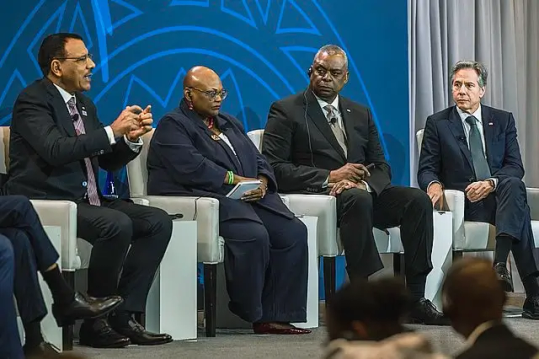
Binken at the Africa Summit. U.S. Secretary of Defense. Wikipedia. Sources: THX News & US Dept. of State. Read the full article
#AntonyJ.Blinken#COVID#foodcrisisinAfrica#Humanitarianaid#Niamey#NIger#PresidentBazoum#Ukraine#USSecretaryBlinken'sSpeech
0 notes
Text
U.S.-Greece Strategic Dialogue Kick-Off Speeches
Foreign Minister Dendias:
Dear Secretary of State, it is with great pleasure that I welcome you in Athens. It has been almost a year-and-a-half since our Third Strategic Dialogue in Washington. In the meantime, we have seen war returning to Europe with the Russian invasion of Ukraine. We have also witnessed a revisionist rhetoric in defense of international law emanating from a number of international actors. The fact is that, in the middle of all this, the strong Greek-U.S. cooperation has been enhanced even further. That speaks volumes for our relation. The strengthening of this cooperation promotes our mutual interest, as well as regional peace, stability, and prosperity. It is also based on shared values and on our respect for international law. The Fourth Strategic Dialogue is a culmination of a series of working group meetings and initiatives of our experts from various ministries. There has been progress in all the Strategic Dialogue subjects: defense and security; law enforcement and counterterrorism; humanitarian challenges; trade, investment; energy and environment; and last, but certainly not least, people-to-people contacts. Moreover, we will be conducting open and in-depth discussions on regional political issues. This Strategic Dialogue is an excellent symbol of the strategic relationship between our two countries. It also shows the continuing interest of the United States in our wider region. Our cooperation on defense and security has been going back for decades, but there are plenty of things to show since the last Strategic Dialogue. The planned inclusion of Alexandroupolis in the MDCA allowed it to play a crucial role when it was most needed. We are looking forward to speeding up our electric interconnections with the two neighboring continents, Asia to Israel, and Africa to Egypt. At the same time, tourist flows have regained their pre-pandemic levels. The Strategic Dialogue is an excellent demonstration of the strategic relationship between our two countries. I know that you have brought with you a group of remarkable high officials from Washington, who will shortly be meeting with our team. Being aware of the dedication that everybody involved has shown in preparing this Fourth Strategic Dialogue, I am certain that it will be a success. Thank you so much.
Secretary Blinken:
Well, Nikos, my friend, thank you so much, and forgive me because my voice is struggling a little bit. But it is wonderful for me and for us to be back in Athens, and I am especially excited to be joining you, to be joining our teams, to kick off this Fourth U.S.-Greece Strategic Dialogue. The dialogue is, in fact, a reflection of the partnership that our citizens have had for more than 200 years. And indeed, the delegation today that you referenced demonstrates the depth of our relationship. We have representatives here from the State Department, Defense, Justice, Homeland Security, Commerce, USAID. Today’s discussion builds off of the last Strategic Dialogue that we held in 2021, which I remember very well. And among other important steps, as you noted, we amended the Mutual Defense Cooperation Agreement between our countries, strengthening our preparedness and shared security by allowing our troops to train together in new ways and in more places. And as you mentioned, one of the new sites supports military transport around the Port of Alexandroupoli, which has become, indeed, a key strategic hub, including bringing in defensive weaponry, trucks, artillery for U.S. military units that are operating in Eastern and Northern Europe, as well as NATO Allies. The United States worked to upgrade the port has created jobs in both of our countries. We’ve made similar investments in other parts of Greece, including $123 million in infrastructure improvements in the Souda Bay and Larissa. This port has been vital to reinforcing NATO’s eastern flank since President Putin launched his brutal war of aggression against Ukraine. The United States is grateful for Greece’s unwavering support for Ukraine since the invasion, including by opening its doors to 20,000 displaced Ukrainians. Greece has also helped lead the humanitarian response to the recent tragic earthquake in Türkiye, from where I came. Greece rapidly deployed dozens of firefighters, doctors, search and rescue personnel, and provided crucial humanitarian support, including 80 tons of medicines, blankets, food, and other supplies. Nikos, I think you were the first foreign minister from Europe to travel to Türkiye, visiting just six days after the disaster. And I took the same helicopter ride that you did with the Turkish foreign minister, our colleague Mevlüt Çavuşoğlu. We saw, as you did, the incredible devastation of this earthquake, and we had a chance – both of us – to be briefed on the rescue and relief efforts. I recall you, Nikos, pledging Greece’s support. And importantly, both foreign ministers – both of you – pledged to increase bilateral cooperation, saying, and I quote, “We shouldn’t wait for another earthquake to improve our relations.” The United States, in turn, pledges to do whatever it can to seize this historic opportunity to strengthen relations between two critical allies in a pivotal region at a key moment for NATO and the world. In the Strategic Dialogue that we’re about to embark on today, we’ll have an opportunity to talk about our shared work on other regional priorities, including promoting clean energy and strengthening energy security. Greece’s energy transition has been a model for the region. In 2012, coal-powered plants provided 50 percent of Greece’s electricity needs. Here we are a decade later, and renewable sources like wind, like solar, like hydro, are powering half of Greece’s electricity needs, eliminating 17.5 million metric tons of carbon dioxide every year. That’s the equivalent of taking 3 million cars off the roads. So that’s a powerful record of progress and success. And of course, Greece is also helping NATO strengthen their energy security by helping diversity their sources and reducing dependence on Russian gas, also deepening their integration into Europe’s broader energy market. Bulgaria, for example, used to depend on Russia for up to 90 percent of its natural gas. The newly constructed Interconnector Greece-Bulgaria, that gas pipeline is allowing Bulgaria to transition away from that source. In the next year, Bulgaria will import nearly 100 percent of its domestic gas needs from Azerbaijan and the United States as a result of this Interconnector. We’ll also talk about ways to strengthen our people-to-people ties. Over 1 billion Americans live, visit Greece every single year. Millions more, of course, have Greek heritage, including our own president, or Joe Bidenopoulos, as he likes to call himself. (Laughter.) Every day our people study with, learn from, each other. They innovate. They run businesses together. They watch each other’s movies. They listen to each other’s music. They enjoy each other’s food. Last November we took our educational cooperation to new heights by launching the Pharos Summit, an initiative dedicated to increasing collaboration between our universities and our exchange programs between our students. We had a record delegation of 30 U.S. universities come to Greece to build partnerships with their Greek public university counterparts, and our governments agreed to grow the number of Fulbright students from 70,000 in 2022 to 100,000 this year. At the summit, Prime Minister Mitsotakis remarked that Greece is an appealing destination for cultural exchange because this vibrant, dynamic country is a workshop of constant change. It’s a wonderful way to describe Greece and, I think, our own country, because the same can be said for us, and the same can be said for our friendship. Ours is a relationship that is always evolving, innovating, ultimately leading the way to a better future for us both. So I’m confident that today’s Strategic Dialogue will further all of these efforts and help us better deliver for the Greek and American people and for the world, because, after all, that’s our responsibility. And with that, we’ve got lots to discuss, so let’s get started. Thank you. Sources: THX News & US Dept. of State. Read the full article
#AntonyJ.Blinken#Greekinternationalrelations#GreekUSrelations#NikosDendias#U.S.-GreeceStrategicDialogue#USStateDepartment
0 notes